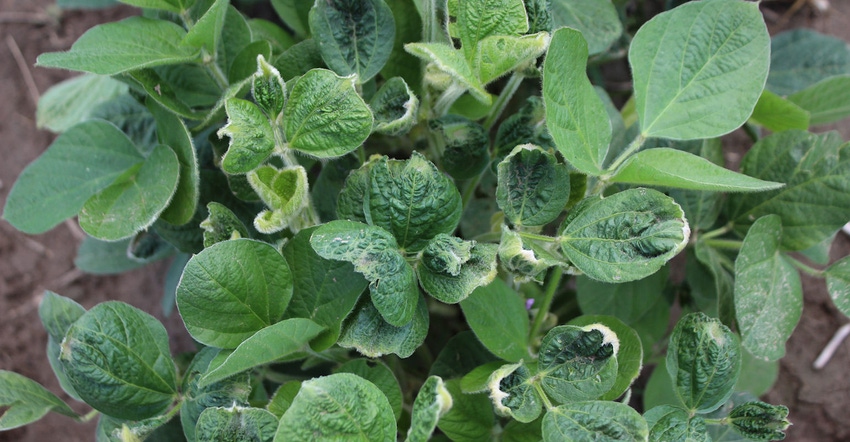
As reports of dicamba incidences continued in the 2021 growing season, Environmental Protection Agency Administrator Michael Regan says EPA is “extremely concerned” about reports of new dicamba incidences and indicated further changes for growers could be coming in the 2022 growing season if the analysis warrants adjustments.
“Growers are currently planning for the 2022 season, and we expect dicamba-tolerant soybeans and cotton to remain a significant part of the total soybean and cotton acres planted,” says Odessa Hines, external affairs manager for BASF Agricultural Solutions North America. Dicamba-tolerant acres totaled between 50 and 60 million acres for 2021 with additional acreage anticipated next year.
While speaking to the National Association of State Departments of Agriculture annual meeting on Sept. 20, Regan says since EPA issued in October 2020 new label restrictions for dicamba use, the 2021 growing season still presented concerns. In October 2020, EPA rolled out a five-year registration for dicamba with additional restrictions on tank mixing of dicamba, downwind buffer requirements of 240 – 310 feet, prohibition of over-the-top on soybeans after June 30 and cotton after July 30, and simplification of the label and use directions for growers.
“We’re still receiving and analyzing new incident information and working very closely with state regulators to understand the conditions on the ground,” Regan told the attendees representing state agricultural department staff and leaders. “EPA is extremely concerned about these reports and is taking steps to better understand the nature and the severity of these incidents in order to assess the sufficiency of the mitigation in the 2020 decision, and, if necessary, take appropriate regulatory action.”
Dicamba is an herbicide that is widely used on agricultural crops, fallow land, pastures, turfgrass and rangeland to control emerged broadleaf weeds and provides some residual control of geminating weeds. Dicamba was first registered in the U.S. in 1967. In late 2016 and early 2017, the Agency conditionally registered three “over the top,” or OTT, dicamba products for use on post-emergent crops – after growth begins. These dicamba products were to be used on genetically modified dicamba-tolerant cotton and soybean plants in 34 states.
In June 2020, the U.S. Ninth Circuit Court of Appeals found that the EPA violated the law in its 2018 approval of dicamba by failing to properly consider the impacts on farmers and the environment. Farmers were left unable to use purchased products in the middle of the season and hope to not face a similar fate in 2022.
Kentucky Commissioner of Agriculture Ryan Quarles, who also serves as NASDA president, says he appreciates Regan taking comments and observations from the state departments of agriculture into consideration as the EPA continues its work on dicamba.
“I think we can all agree here at NASDA that we’d much rather have crop technology go through the proper regulatory protocols than be challenged in court,” Quarles says. “We need to make sure that we work with you and not let juries decide what sort of crop technology for American farmers.”
Regan says on Sept. 9, 2021, EPA sent letters to the registrants of the products containing dicamba for post-emergent uses reiterating their legally required duty under the Federal Insecticide, Fungicide, and Rodenticide Act that at any time after the registration of a pesticide has additional factual information regarding adverse effects of the pesticide that the information should be submitted to EPA.
EPA also held a listening session with the Weed Science Society of America, various academics, state agricultural extensions agents and USDA. Another was held with the Association of American Pesticide Control Officials.
“We’re encouraging others with relevant information to continue to provide it to the agency so that we can make the best decisions possible, those that are informed by science, but that also will allow us to uphold the law and our statutory requirements,” Regan says.
About the Author(s)
You May Also Like






